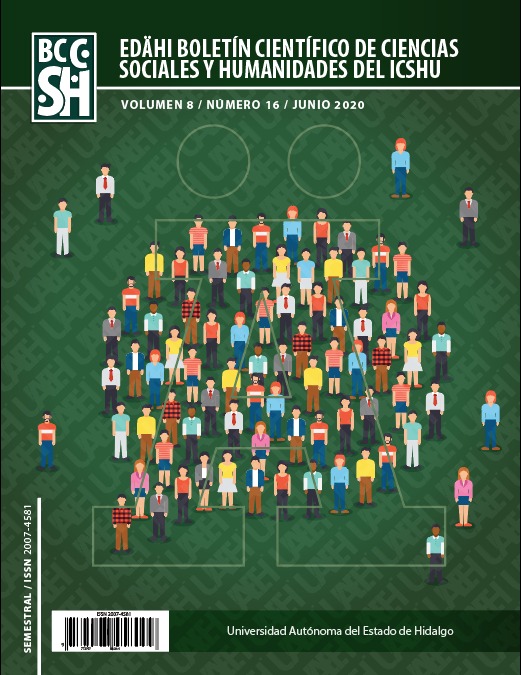Basic level educational platforms used in homeschooling in Mexico
DOI:
https://doi.org/10.29057/icshu.v8i16.5454Keywords:
Homeschooling, educational platforms, sociocultural contextAbstract
One of the factors that has promoted distance education since the middle of the last century is precisely technological advances. That is why systematization, accreditation, didactic supports, curriculums, discussion forums, blogs, etc., will make the home education a growing phenomenon at international and national level, pushing families to reconsider the proposals of compulsory classroom attendance according to Exeni (2013).
A qualitative study is proposed to identify children educated at home in Mexico through Educational Platforms; In addition to the pedagogical implications and form of certification by which children educated under this modality obtain official recognition of basic level academic performance.
Therefore, this partial research also deals with the aforementioned educational processes, aspects about the socialization of children in virtual environments, theoretical aspects that are little studied in Mexico and that places this research as a topic of educational innovation that allows analyse this model of distance education in children who study Basic Education.
Downloads
References
Castells, M. (2000) La era de la información. Vol 1 La sociedad red (segunda edición) Madrid, Alianza
Clarenc, C. A. (2013). Análisis comparativo de LMS. Lulu. com.
Coll C. Y Monereo C. Eds. (2008) Psicologia de la Educación Virtual. Madrid, Morata.
Hoeneisen Terán, A. (2014). La educación en casa: una modalidad educativa a considerar (Bachelor's thesis, Quito, 2014.).
Gutierrez L. (2012). Conectivismo como teoría de aprendizaje: conceptos, ideas y posibles limitaciones. Revista educación y tecnología, (1), 111-122.
Guzmán, D. E. A., Molina, A. L. M., & Vargas, A. G. R. 2018 La educación en casa (homeschooling) en familias cristianas del noreste de México: percepciones de padres e hijos de 3 familias. Revista de Ciencias Sociales, Humanidades y Tecnología.
Mieles, M. D., & García, M. C. (2010). Apuntes sobre socialización infantil y construcción de identidad en ambientes multiculturales. Revista Latinoamericana de Ciencias Sociales, Niñez y Juventud, 8(2), 809- 819.
Moreno, F. A., & Martínez, A. U. C. (2015). Curriculum, educación de masas y el modelo de la homeschooling.
Pineda F.A., (2016). El uso de tecnologías de la información y la comunicación en la educación en casa: una aproximación desde la teoría fundamentada (Master's thesis, Universidad de La Sabana).
Rodríguez, K. S. (2016). Análisis descriptivo sobre el homeschooling en México (Doctoral dissertation, Ajusco).
Shayo, C.; Olfman, L.; Iriberri, A. E Igbaria, M. (2007). The virtual society: its driving f orces, arrangements, practices and implications. En J. GACKENBACH (Ed.), Psychology and the Internet (págs. 187-220). San Diego, Elsevier.




















